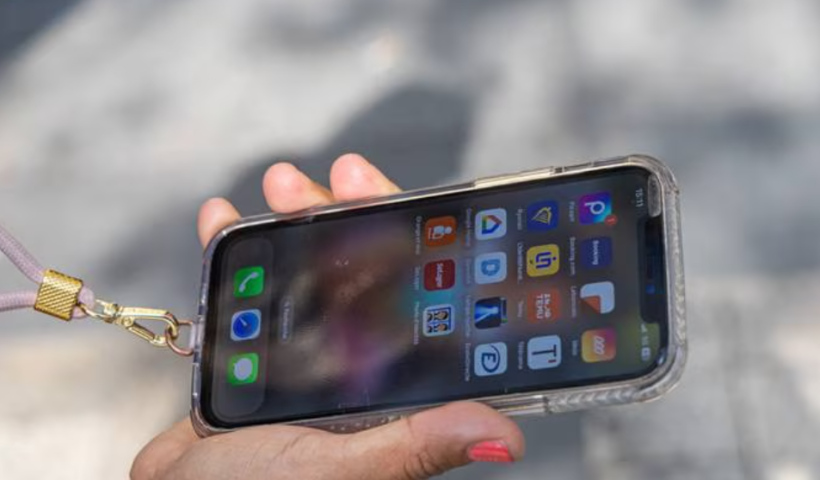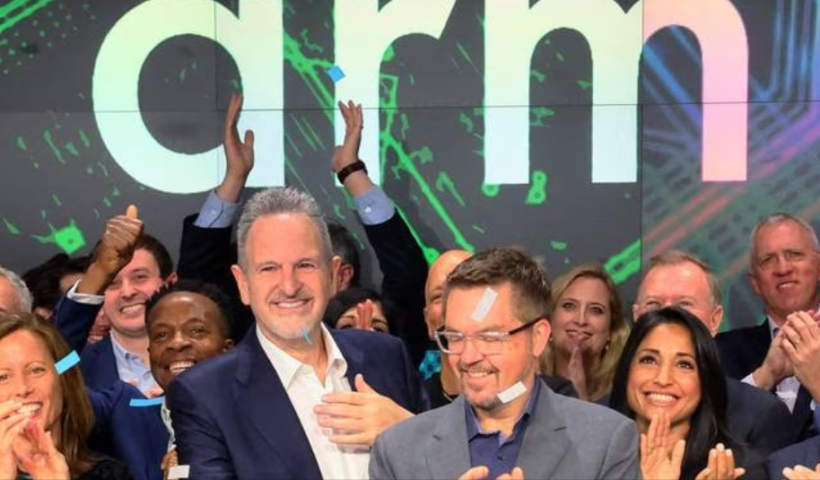Thursday saw a 25% increase in Arm Holdings stock as the business raised $4.87 billion in its IPO, making it the year’s largest listing.
After making their Nasdaq debut, the UK chip designer’s shares shot up as much as 30%. At the closing of trading, they were trading at $63.59, significantly above Arm’s offer price and valued at more than $65 billion. In after-hours trading, the shares continued to rise, gaining 7%.
Arm, a provider of circuit designs used in chips around the world, sold 95.5 million American depository shares for $51 each after initially pricing them at $47 and $51.
For 30 days following the date of the final prospectus, SoftBank has given the underwriters the option to buy up to an additional seven million American depository shares to meet over-allotments, if any.
Following the IPO, SoftBank, which paid $32 billion for Arm in 2016, will own around 90% of the company’s shares.
According to customary conditions, the IPO is anticipated to close on September 18, the business stated in a statement on Wednesday.
The growth of artificial intelligence, which is anticipated to produce 21% more revenue this year, or $53.4 billion, than in 2022 as firms continue to implement AI capabilities, has benefited Arm and other chip-related businesses like Nvidia.
Revenue growth is anticipated to pick up speed, increasing by almost 25% to $67.2 billion next year and more than doubling to around $120 billion by 2027.
According to Arm, its processing architectures and software platforms power more than 250 billion chips that enable sophisticated computing, which is used in everything from sensors to smartphones and supercomputers.
In all markets, according to the business, about 70% of the global population uses Arm-based technology. Nvidia, Samsung, Apple, Google, and Intel are a few of Arm’s clients.
Regarding Arm’s IPO, Raine Securities is serving as financial advisor. For the offering, Barclays, Goldman Sachs, JP Morgan, and Mizuho are working together as joint book-running managers.
Business usage of AI has existed for some time, but generative AI, popularized by Microsoft-backed Open AI’s ChatGPT, which can generate a variety of data types including audio, code, photos, text, simulations, 3D objects, and videos, has gained pace.
Following a spike in interest in 2019, investors invested more than $4.2 billion into generative AI start-ups through 215 deals in 2021 and 2022, according to latest CB Insights data.
According to Goldman Sachs, global AI investment is anticipated to reach $200 billion by 2025 and may have a greater effect on GDP.
According to Goldman Sachs, generative AI might increase global labor productivity growth by more than 1% per year over the next ten years.
The US investment bank stated in a report in July that the biggest growth is anticipated to come from simple labor and time savings which allow higher production, suggesting that AI might be a “economically significant” driver of technology investment as adoption develops .Long-term investment in AI could account for 4% of US GDP and 2.5% of GDP in other countries that are at the forefront of the field in the next ten years, according to the report.




